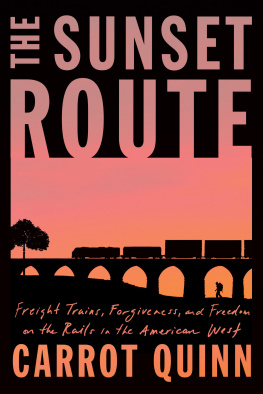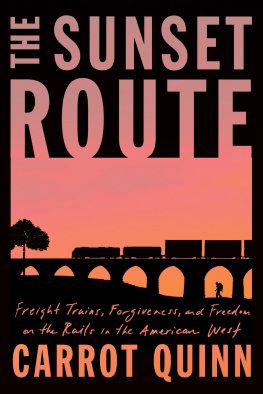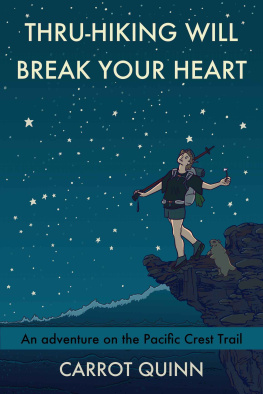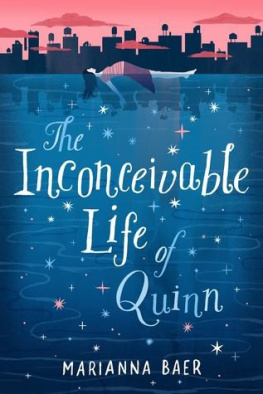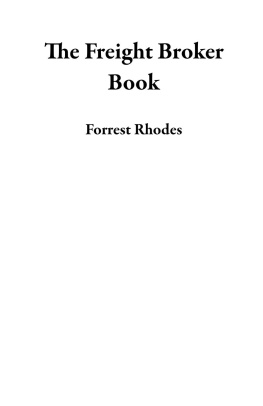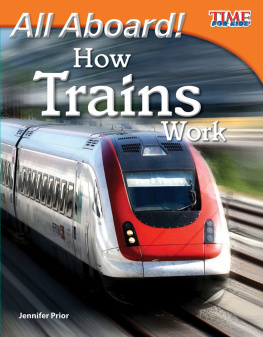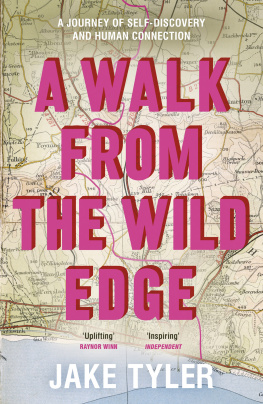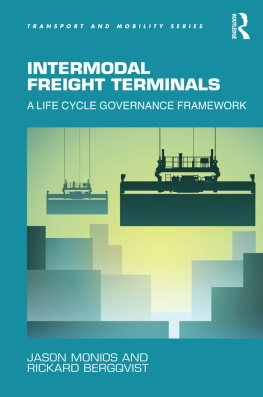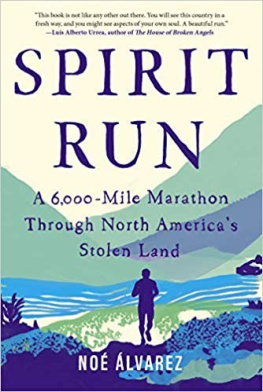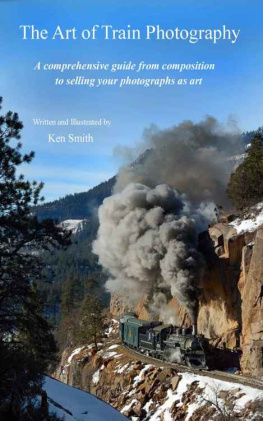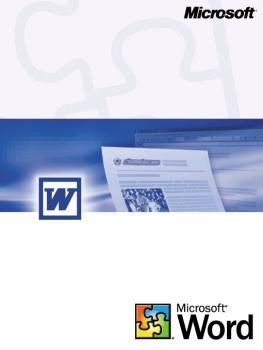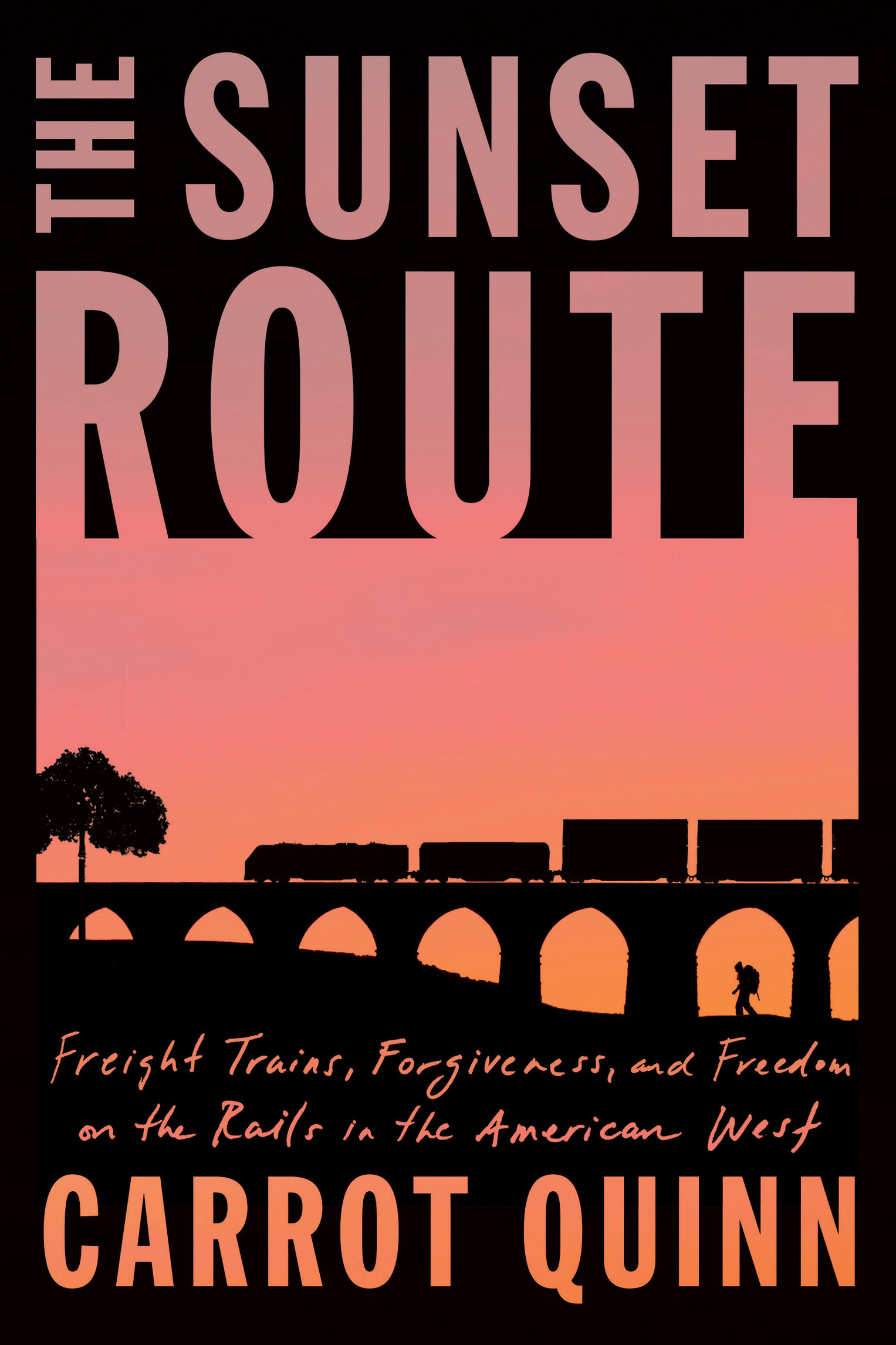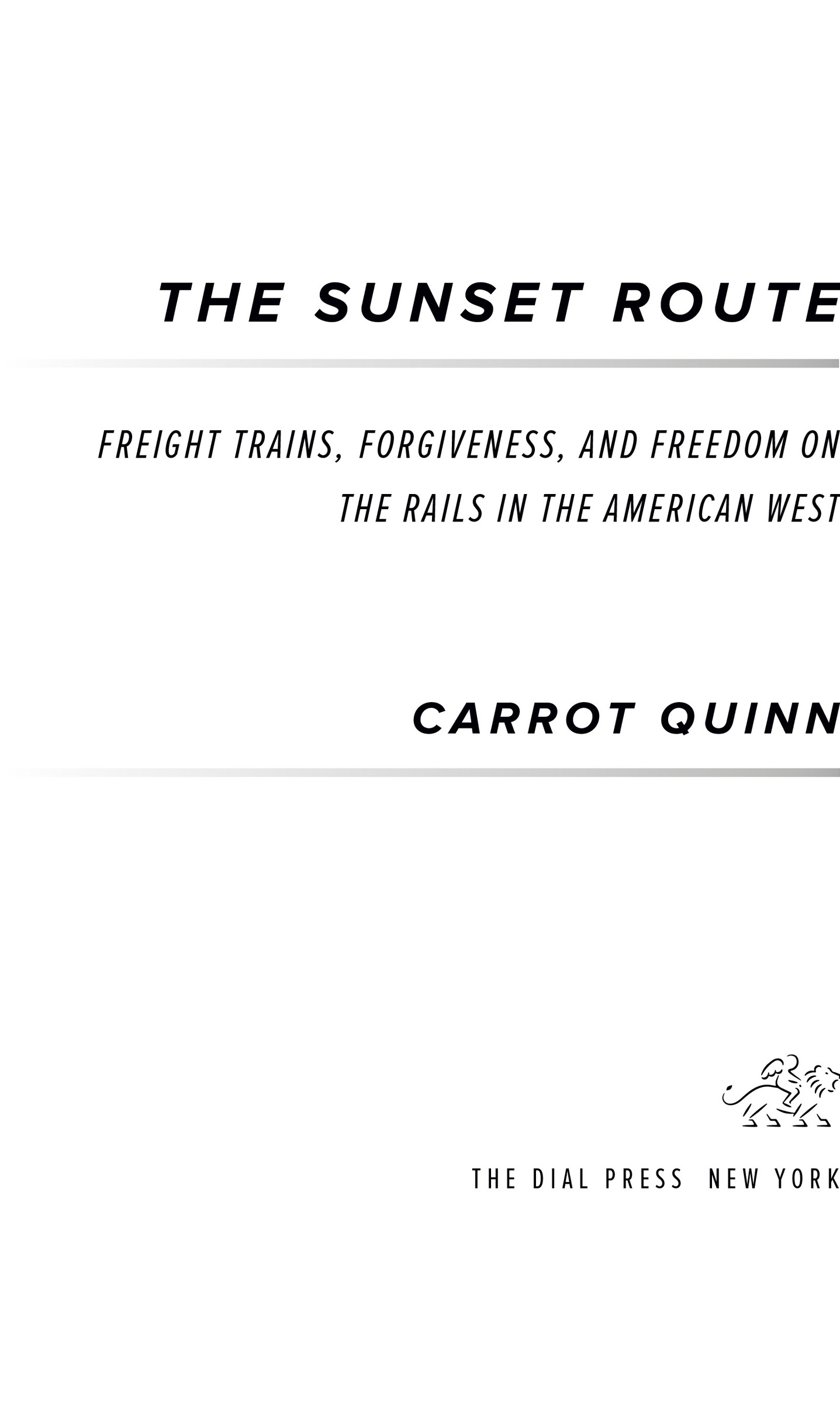The stories in this book are crafted from my journals, from conversations Ive had with others, and from my own memory. While all of the events in this memoir are real and true and did happen, some dialogue has been reconstructed, some exact dates and timelines have been estimated, and the names and some identifying characteristics of several people mentioned in the book have been changed.
2003

I crouch in the dark railcar, gripping a plastic tarp around me. The cold wind beats at my face. Beyond the metal lip of the car is the black fir forest of Oregons Cascade Mountains, the trees silhouettes against the bright, moonlit snow. These trees bear witness to my train rushing past, train cars rocking and groaning as we hurtle along the track at sixty miles an hour. I press my numb fingers into my palm, counting off the hours until dawn. One, two, three, four. I pull the water bottle from my pack and shake itempty. When did I drink the last of it? I cant remember. All night Ive been drifting in and out of a dim, strange place without time, too cold to really sleep. I remember the moment, earlier today, when I lost my sleeping bag to the train. Id just woken from a nap. The thundering of the train was ceaseless, the slice of sky visible above the lip of our railcar empty of trees. I looked over at my friend Sami, curled in her sleeping bag on the other side of the car, and I figured Id cross the railcar to talk to her, since there was too much noise for us to shout. For stability, I gripped the underside of the semi-truck trailer that sat in the railcar as I worked my way along the narrow ledge between the two large holes in the floor of the car, over to Samis side. I sat next to her on her sleeping pad and we shouted about our wonder and shared a bag of dried mango. The train slowed and then lurched, picking up speed again. This turned the four-foot-wide hole in the floor into a vacuum of strong, sucking wind, and my zero-degree sleeping bag, which Id just shoplifted the day before for this trip, rose from the foam pad onto which Id unstuffed it, tumbled a bit, and was slurped into the hole as if into a hell-mouth, gone forever.
I started laughing, dried mango stuck to my teeth, too shocked to do anything else. Sami stared at the hole, horrified. It was February, and the low farmlands of the Willamette Valley were dark with gray clouds that never left, resulting in a persistent cold drizzle that stung your cheeks. I might be okay without a sleeping bag here. But in a matter of hours our train would climb into the Cascades, and we werent entirely sure, but we figured it would be colder up there. Maybe there would even be snow.
Fuck fuck fuck! I yelled, into the wind.
I have a tarp you can use, Sami shouted at me. She pulled a folded blue bundle from the top of her pack. I took it gratefully. It would be dark soon, and there wouldnt be anything to do but bed down in the rumble and the wind and wait for dawn. I crossed back to my side of the car and sat on my foam pad, taking stock of my things. I had a wool sweater, a flannel shirt, a hat, a pair of gloves, a rain jacket. I was wearing heavy, double-knee Carhartts and leather hiking boots, both of which Id shoplifted. Id be warm enough tonight with these things, wouldnt I? How cold did it get in the Cascade Mountains in February, anyway? I had a few days worth of nuts, dried fruit, and canned beans, and one liter of water. Wed arrived at the trainyard with two liters each, and Id drunk one of mine while waiting for our train. I was pretty sure my remaining liter wasnt enough to get me the rest of the way to Los Angeleswhy hadnt I brought more? Well, there was nothing to be done now.
Now, in this late hour, I know the answer to my earlier question: it is very cold in the Cascade Mountains in February, especially when you are hurtling along at breakneck speed and you have no real protection from the wind. I pull the blue tarp tighter around me, strain to see shapes in the glittering dark. How long until we cross from Oregon into California, and then drop down into the warm desert? And how long until we reach L.A., our destination? One more day? Three? The fir forest blurs past, its hollows piled with snow. The trees observe without judgment, as they have for my entire life.
I think back to two days ago when Sami and I were sitting on the lip of this railcar, having just climbed onto the train.
Its okay, she said. This car is safe.
The railcar was shaped like a shoebox with no top, and we were looking down inside it. The car didnt look rideable. It looked dangerous. Instead of a solid metal floor, there were two large holes, each four feet across, through which we could see the train tracks. On either side of each of these holes was just a scrap of floor, about twelve inches wide. This ledge was where we would sleep, eat, and hang out until our train reached L.A. To complicate things further, the back half of a semi-truck was sitting in this railcar. We would have to crawl between the huge truck tires to get to the little ledges where we could rest, each of us on one side of one of the large holes. Our view would be the hoses and grimy pipes of the underside of the truck. The trucks mud flaps would be our only protection from the wind.
See, said Sami as she jumped down into the car. Perfectly safe. She pulled off her large canvas military backpack and pushed it in front of her, under the axle of the truck. She reached a ledge and clipped the straps of her pack around a metal pipe that ran the length of the railcar. You attach your pack to the car so it doesnt fall in the hole when the train is moving. Then you just make sure that

